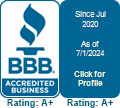
Regular maintenance is the cornerstone of operational integrity in private jet aviation. It involves thorough inspections, repairs, and preventive measures to ensure that every aspect of the aircraft is functioning at its optimal level. Regular maintenance not only extends the lifespan of the aircraft but also ensures safety and reliability, essential for both passengers and crew. This ongoing process includes engine checks, structural inspections, and system updates, all aimed at maintaining the highest standards of airworthiness. Learn about the costs involved in chartering a private jet, which includes maintenance expenses.
We have witnessed firsthand the evolution and advancements in aircraft maintenance. From overseeing meticulous engine overhauls to coordinating advanced avionics upgrades, our journey has been marked by a commitment to operational excellence. This experience has not only deepened our understanding of aviation safety but also sharpened our ability to anticipate and meet the unique needs of our clientele.
Here’s a visual representation highlighting the key elements of maintenance in private jet operations. Each category – from regular maintenance and safety checks to record-keeping – is labeled ‘Critical’, emphasizing their paramount importance in ensuring the safety, reliability, and efficiency of private jet flights.
Key Components of Safety Checks
Safety checks are an integral part of the maintenance routine. They are meticulously designed to identify potential issues before they escalate into serious problems. These checks cover various aspects of the aircraft, including the engines, avionics, fuel systems, and emergency equipment. Each component is scrutinized to ensure it meets stringent safety standards. The goal is to prevent any malfunctions that could compromise the safety of the flight.
Advanced Diagnostic Tools and Techniques
The maintenance of private jets has evolved with the advent of advanced diagnostic tools and techniques. Modern maintenance procedures employ state-of-the-art technology to accurately diagnose and address any issues. This includes the use of computerized systems to monitor engine performance, structural integrity, and electronic systems. These tools enable swift identification and resolution of problems, ensuring the aircraft remains in peak condition. Request a quote for your next private jet experience, which benefits from these advanced maintenance practices.
Role of Certified Maintenance Professionals
The maintenance of private jets is entrusted to certified maintenance professionals, whose expertise is crucial in maintaining the high standards of aviation safety. These professionals possess specialized training and certifications, ensuring they are equipped with the latest knowledge and skills in aircraft maintenance. They are responsible for conducting thorough inspections, implementing repairs, and ensuring that every aircraft meets regulatory and operational standards. Their role is fundamental to upholding the safety and efficiency of the private jet fleet.
Our team at JetLevel Aviation is composed of professionals who possess not just FAA certifications but also specialized training in the latest aviation maintenance technologies. We pride ourselves on our team’s expertise in areas such as advanced diagnostic systems and eco-efficient engine technologies. This expertise is not just about maintaining standards; it’s about setting new benchmarks in private jet maintenance and safety.
Compliance with Regulatory Standards
Adherence to regulatory standards is a critical aspect of private jet maintenance. Aviation authorities establish stringent guidelines that govern every aspect of aircraft maintenance. These standards ensure that maintenance practices meet the highest safety and performance criteria. Regular audits and inspections by regulatory bodies guarantee that these standards are consistently met, thereby safeguarding the integrity of the aviation sector. Explore how charter flights cost calculation includes considerations for maintenance and regulatory compliance.
Impact on Operational Safety and Efficiency
The impact of diligent maintenance on operational safety and efficiency cannot be overstated. Well-maintained aircraft are less likely to encounter technical issues, leading to reduced downtime and more reliable service. This not only enhances safety but also contributes to operational efficiency. Regular maintenance ensures that private jets are ready to fly at a moment’s notice, providing clients with the flexibility and reliability they expect from premium aviation services.
Scheduling and Record-Keeping Practices
Effective maintenance of private jets also involves meticulous scheduling and record-keeping. Maintenance schedules are carefully planned to minimize disruptions to flight operations. This includes routine checks as well as more extensive overhauls at prescribed intervals. Accurate and detailed records of all maintenance activities are maintained, providing a comprehensive history of each aircraft’s condition and upkeep. These practices are essential for ensuring ongoing compliance and operational readiness. Learn about the unique opportunities offered by empty leg flights, which also adhere to rigorous maintenance standards.
In conclusion, the maintenance of private jets is a multifaceted and critical aspect of the aviation industry. It encompasses a range of practices, from regular checks and the use of advanced diagnostic tools to the involvement of certified professionals and adherence to regulatory standards. These practices ensure the safety, reliability, and efficiency of private jet operations, ultimately enhancing the overall flight experience for clients.


